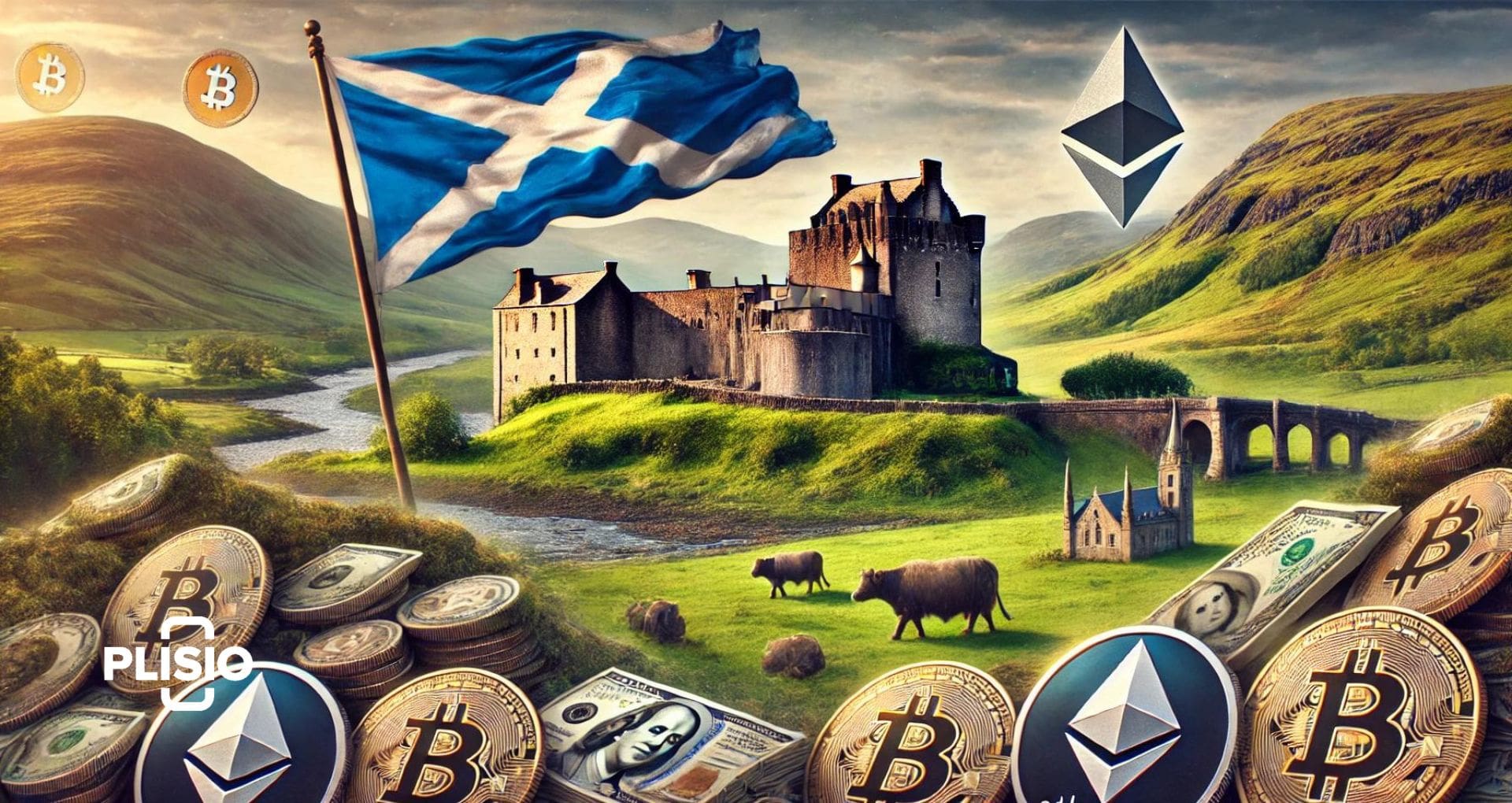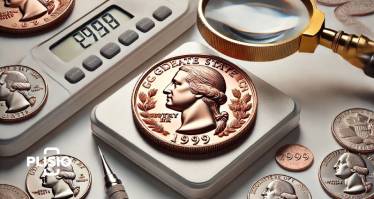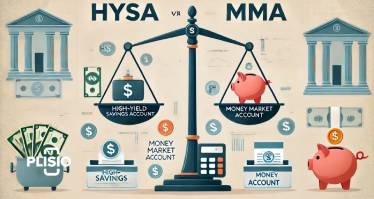Scotland Currency

Scotland, with its wild, windswept landscapes, ancient castles, and the legendary loch with its mysterious monster, offers a mystical and thrilling destination for travelers. As you prepare for your trip, it's important to get familiar with Scotland's unique currency and preferred payment methods. Unlike the rest of the UK, Scotland has its own banknotes, which differ from those issued in England. Understanding these Scottish notes will help you navigate the country's cities, towns, and countryside with ease.
This travel guide will provide you with essential information about Scottish currency, its denominations, and practical tips for managing your money during your stay, helping you make the most of your savings and enjoy a smoother travel experience.
Scottish Currency
Scotland shares the pound sterling (£) with the rest of the UK, but what sets Scottish currency apart is the unique banknotes issued by three Scottish banks: the Bank of Scotland, the Royal Bank of Scotland, and Clydesdale Bank. While these notes are legal tender across Scotland and accepted throughout the UK, they have a distinctive history tied to the country’s identity.
The history of Scottish currency traces back to the 12th century, when David I introduced the first coins. Scotland's monetary system evolved over the centuries, with the pound Scots emerging in the 14th century, though issues like coin debasement persisted until the 16th century. In the 17th century, the Scottish Parliament established the Bank of Scotland, which began issuing banknotes backed by silver and later, gold. Despite the 1707 Act of Union, which united Scotland and England under a single currency—the pound sterling—Scotland continued to issue its own banknotes, reflecting the country’s unique heritage.
British coinage also has a rich history. The first British coins, like the silver penny from the 8th century, were followed by new denominations such as the shilling in the 15th century. Reforms under monarchs like Henry VIII and Elizabeth I reshaped the coinage, and by the 17th century, the guinea and other coins became central to trade. The UK decimalized its currency in 1971, introducing modern coins that align with today's economic needs, like the £2 coin in 1998 and the 12-sided £1 coin in 2017.
Banknotes in the UK also have a fascinating history. The Bank of England started issuing handwritten notes in the 17th century, eventually shifting to printed notes in the 19th century. Scottish banks, too, began issuing their own notes around the same time. Today, UK banknotes are known for their advanced security features, such as holograms and watermarks. The transition to polymer notes, which started in 2016, enhanced the durability and security of the currency. Scottish notes, alongside those issued by the Bank of England, remain an essential part of the country’s economy and identity.
Inflation and exchange rates play a key role in the value of Scotland’s currency. While inflation in Scotland has remained relatively stable, the exchange rate with the pound sterling continues to influence the economy. Debates around an independent Scotland’s currency and potential currency union with the UK highlight the ongoing discussion about the future of Scottish money.
Today, the polymer series of Bank of England notes features influential figures such as Winston Churchill, Jane Austen, J.M.W. Turner, and Alan Turing. These notes not only celebrate British history and culture but also include modern security enhancements to protect against forgery, ensuring their place as durable and trusted forms of currency.
From ancient silver coins to today’s high-tech polymer banknotes, Scotland's currency tells a story of adaptation and resilience, reflecting its deep historical roots while embracing modern advancements.
The Pound: Scottish Coins and Banknotes
In Scotland, the currency is the pound sterling, available in both banknotes and coins. The British currency system uses the pound as the main unit, divided into 100 pence (often referred to as "pee").
Coins in Scotland are issued by the Royal Mint and include 1p, 2p, 5p, 10p, 20p, 50p, £1, and £2 denominations. These coins are identical to those used throughout the UK.
Scottish banknotes come in £5, £10, £20, £50, and £100 denominations, with the rare £1 note still in limited circulation. Three Scottish banks – the Bank of Scotland, Royal Bank of Scotland, and Clydesdale Bank – issue their own unique banknotes with distinct designs.
While Scottish notes are generally accepted across the UK, they are not considered official legal tender in England or Wales. Most businesses still accept them, but they are not required to do so. However, British banks typically exchange Scottish pounds for English ones at no extra cost. English banknotes, on the other hand, are accepted everywhere in Scotland, so it’s a good idea to use your Scottish notes first when traveling outside of Scotland.
Using Your Bank Card in Scotland
Using your bank card in Scotland is straightforward, with contactless payments up to £30 being widely popular. Debit, credit, and prepaid cards, especially those with Visa or Mastercard logos, are generally accepted across the country. However, American Express and Diners Club may not be accepted everywhere, particularly outside major cities like Glasgow and Edinburgh.
It's wise to carry some cash for smaller purchases, especially in rural areas where card acceptance might be limited or a minimum spend is required. While ATMs are easy to find in most towns and cities and are connected to international networks like Cirrus, Visa, and Mastercard, they can be scarce in remote areas. Having cash on hand is useful in case card payments aren’t possible or an ATM isn’t available nearby.
Can I use English Money in Scotland?
For travelers accustomed to using just one type of banknote, the variety of notes in the UK can be confusing. In Scotland, one can encounter banknotes from the Royal Bank of Scotland, Bank of Scotland, and Clydesdale Bank, along with Bank of England and Northern Irish notes. This often raises the question: what money is accepted in Scotland?
The answer is simple—yes, English money can be used in Scotland. The currency in Scotland is the British Pound (GBP), and any note that says "Pound Sterling" is accepted. Both Scottish and English banknotes are in regular circulation, and the coins are the same throughout the UK, so there’s no issue with using them in Scotland.
However, travelers should be aware that many notes and coins have been recently updated. Older versions may no longer be accepted in shops, though banks will still exchange them for new notes and coins.
Is USD accepted in Scotland?
Although some businesses in Scotland may accept USD, it is not a commonly used currency. Travelers are advised to exchange their USD for British pounds (GBP) before arriving in Scotland.
Currency exchanges can be done at banks, exchange offices, or ATMs throughout the country, though exchange rates will vary depending on the location and method. When using a credit card, it is important to check with your bank regarding any foreign transaction fees that may apply. Visa and MasterCard are the most widely accepted credit cards in Scotland.
In summary, it’s best for travelers to have British pounds in cash or available on their credit card to avoid any inconvenience. While some places might accept USD, it is not widely used, making it necessary to exchange currency for GBP.
Is Crypto Accepted in Scotland?
Cryptocurrency is not yet widely accepted as a method of payment in Scotland. While there are some tech-savvy businesses, especially in larger cities like Edinburgh and Glasgow, that may accept Bitcoin or other popular cryptocurrencies, the majority of shops, restaurants, and services do not. Traditional payment methods such as credit cards, debit cards, and cash remain the most commonly used.
That said, interest in cryptocurrencies is growing globally, and Scotland is no exception. Some industries, particularly within the tech and financial sectors, are exploring the potential of blockchain technology and crypto payments. However, for now, travelers should not rely on cryptocurrency for everyday transactions and should ensure they have access to British pounds (GBP) for their purchases.
7 Money Tips to Get You Through Scotland
Each year, millions of travelers visit Scotland, but many end up losing money on unnecessary foreign currency conversions. Here are some practical tips to help you make the most of your money during your trip:
- Avoid Airport Exchanges – Currency exchange counters at airports often have high fees and poor rates. If you’re looking for a good deal, steer clear of airport exchanges whenever possible.
- Carry Only What You Need – It can be costly to convert British pounds back into your home currency, so try to estimate how much you’ll need. Additionally, it’s safer to avoid carrying large amounts of cash on longer trips.
- Ask for Mixed Denominations – Having a variety of £20 and £10 notes will make transactions easier with Scottish vendors, who may have trouble with larger bills.
- Check the Exchange Rate – Use tools like Google or XE.com to find the current market exchange rate. Be aware that rates offered by banks or currency exchanges can vary significantly, so aim for rates that are as close to the market rate as possible.
- Watch for Hidden Fees – Hidden fees, especially with international transactions, can significantly impact your budget. Be mindful of fees for using your bank card abroad and always check for additional charges.
- Choose the Right Card – Having a card for your travels is convenient, but some cards come with higher fees than others. Research and select a travel-friendly card to avoid unnecessary costs.
- Balance Card and Cash Usage – A mix of card and cash use is ideal. Use your credit card for larger purchases like hotels and car rentals, while reserving cash for smaller expenses such as transportation, meals, and attractions.



